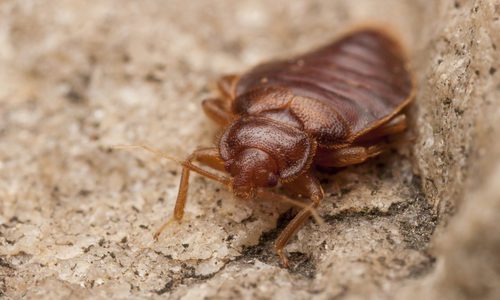Relied On Kings Pest Control Cincinnati OH: Specialist Services
Wiki Article
Sorts Of Parasite Control: Which Method Is Right for Your Infestation?
When encountered with a pest infestation, the selection of a proper technique for bug control is vital in properly managing the scenario. By checking out the various kinds of insect control techniques available, people can make informed decisions customized to their special scenarios, making sure a much more sustainable and effective outcome in parasite eradication.Chemical Bug Control
Chemical bug control involves making use of artificial or naturally derived chemicals to manage and remove pest populations effectively. This approach is frequently made use of in agriculture, forestry, and household settings to battle a large range of parasites, including rats, weeds, and pests. Using chemical pesticides can offer quick and targeted services to pest invasions, making it a popular option for several people and services.Among the crucial advantages of chemical bug control is its capability to swiftly eliminate insects, decreasing the danger of damage to crops, residential or commercial property, and human wellness. By utilizing specific chemicals that target certain pests, this approach can properly manage problems while minimizing injury to helpful microorganisms and the environment when used correctly.
Nonetheless, the usage of chemical bug control likewise raises issues concerning possible damaging impacts on non-target varieties, water sources, and human health. It is essential to adhere to security guidelines, apply chemicals properly, and consider alternative parasite control approaches to decrease these dangers and guarantee lasting pest management techniques.
Biological Bug Control
Organic parasite control, additionally referred to as biocontrol, uses living organisms to minimize and manage pest populaces normally. This approach harnesses the power of nature to control bugs without the need for artificial chemicals. Biocontrol can involve the introduction of natural opponents of the insect varieties, such as parasites, predators, or pathogens, to reduce pest populations. By utilizing the insect's all-natural killers or pathogens, organic bug control uses a lasting and ecologically pleasant service to pest administration.
Mechanical Insect Control
Making use of hand-operated and physical approaches to handle pest populations, mechanical insect control supplies an alternative technique that does not depend on the usage of living organisms or synthetic chemicals. This method involves the usage of barriers, traps, or other tools to literally discourage or get rid of bugs. By blocking insect access points or establishing catches to capture them, mechanical parasite control can successfully minimize infestations without introducing chemicals into the environment.One typical instance of mechanical pest control is the use of mesh displays on doors and windows to avoid pests from getting in structures. This easy yet reliable approach works as a physical barrier, keeping parasites out while permitting for proper ventilation. Additionally, devices like mousetraps, click here to read fly swatters, and ultrasonic repellents drop under the mechanical pest control classification.
While mechanical bug control approaches can be labor-intensive and require regular monitoring and upkeep, they supply a lasting and eco-friendly remedy for managing bug problems. By incorporating various mechanical methods, property proprietors can create an extensive parasite control strategy that reduces reliance on chemical pesticides.
Physical Parasite Control

Some Look At This common physical bug control approaches include the use of barriers such as internet or displays to protect against parasite entrance, traps to record and remove pests, and hand-picking to literally get rid of pests from plants or frameworks. Additionally, techniques like heat treatments can be utilized to manage parasites like bed bugs by raising the temperature level to degrees that are dangerous to the insects.
Physical pest control is particularly valuable in incorporated bug monitoring (IPM) strategies, where multiple insect control approaches are integrated for efficient bug administration while reducing the use of chemicals. By utilizing physical pest control strategies, people can properly attend to insect invasions with very little environmental impact.
Integrated Bug Monitoring
When implementing physical pest control methods as component of parasite management strategies, Integrated Insect Administration (IPM) emerges as a thorough method that leverages various strategies to properly control pest populaces. IPM concentrates on long-term avoidance of pests through a mix of biological, social, physical, and chemical devices customized to certain insect concerns. By incorporating multiple control techniques, IPM intends to lessen the dangers related to pests while likewise minimizing reliance on chemical remedies.One secret element of IPM is the focus on tracking and evaluating pest populaces to determine the most proper control methods. This aggressive approach permits for very early treatment and targeted techniques, resulting in a lot more efficient parasite management. Additionally, IPM Visit Website promotes ecologically pleasant practices by prioritizing non-chemical control methods and just making use of chemicals as a last resource.
Conclusion

By making use of the parasite's natural killers or virus, biological insect control supplies a sustainable and ecologically friendly option to pest monitoring. - Kings cincinnati pest control companies
Utilizing physical and hand-operated methods to handle pest populaces, mechanical insect control provides a different method that does not count on the usage of living microorganisms or synthetic chemicals.A reliable strategy to managing insect populations without counting on chemical or biological approaches involves the use of physical pest control strategies.When executing physical pest control approaches as component of pest administration techniques, Integrated Pest Management (IPM) arises as a comprehensive approach that leverages numerous methods to successfully regulate pest populations. Chemical bug control involves the use of pesticides, organic pest control utilizes natural predators, mechanical parasite control includes physical obstacles, physical parasite control consists of capturing or getting rid of parasites, and incorporated parasite management integrates multiple approaches for a holistic approach to pest control.
Report this wiki page